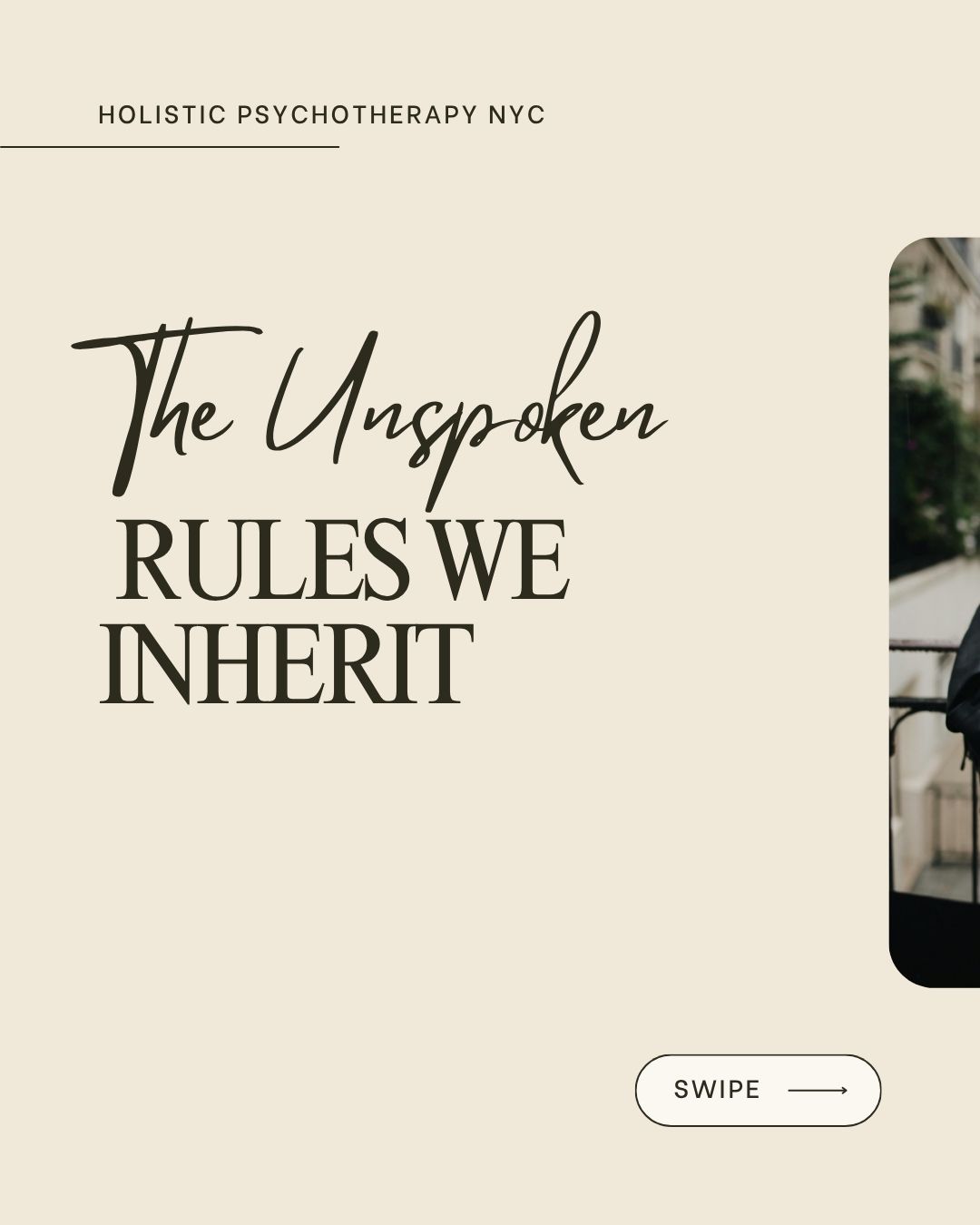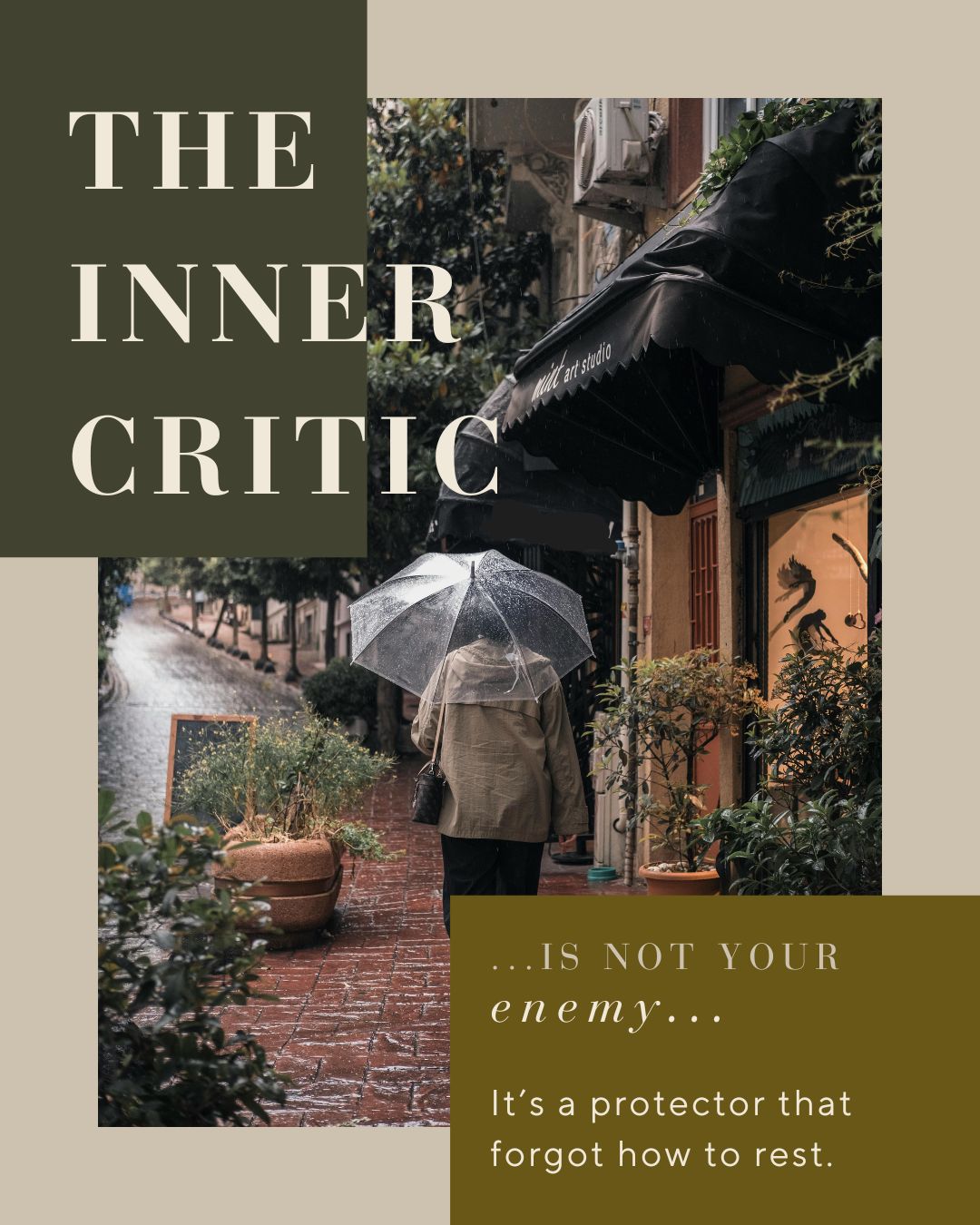Wanting space can feel complicated. You long for rest, but guilt creeps in when you say no. You crave independence, yet worry others will see it as selfish or ungrateful. For many raised in collectivist families or cultures, boundaries aren’t just about personal well-being—they’re tangled with loyalty, respect, and belonging.
Boundaries in Cultural and Family Contexts
In Western therapy, boundaries are often described as the hallmark of healthy relationships. But reality is more nuanced. In some families, “normative” Western boundaries are misunderstood as rejection. In some cultures, they can even feel like betrayal.
So how do we honor family and culture while also honoring ourselves?
As someone raised in a South Asian household and trained as a therapist, I know how complex this terrain is. Many of us grew up absorbing unspoken rules about what it means to be “good”:
-
Good children sacrifice for their families.
-
Respect means never saying no.
-
Love means putting others before yourself.
These narratives are often born from care and survival. Immigrant families, for example, may rely on closeness and sacrifice to navigate unfamiliar environments. But when these messages become rigid, they leave little room for personal needs.
The Cost of Living by Obligation
Over time, this can manifest as:
-
Feeling overwhelmed by carrying others’ problems
-
Resentment at unspoken expectations
-
Avoidance of family interactions to escape conflict
-
Loss of autonomy, where decisions feel dictated by others
The long-term effects can also lead to anxiety, depression, low self-esteem, and diminished self-worth. When obligation outweighs choice, relationships can feel heavy with duty instead of rooted in connection.
Why Boundaries Can Feel Unsafe
If asserting yourself feels terrifying, there’s a reason. For many, saying no wasn’t just discouraged—it was unsafe. Pushing back may have led to shame, conflict, or even withdrawal of love. Over time, the nervous system learns that boundaries equal danger.
This is why guilt, anxiety, or fear can rise so quickly in these moments. Your body may tighten, your thoughts may race, or you may suddenly back down. These aren’t weaknesses. They are protective strategies that once kept you safe.
These patterns don’t stay confined to childhood. The dynamics of enmeshment often ripple into adult life, especially in romantic relationships. Some may repeat familiar patterns of over-involvement, while others struggle to voice needs at all. Both can create codependent or imbalanced dynamics—echoes of blurred boundaries learned early on.
Boundaries as Connection, Not Rejection
Here’s the reframe: boundaries are not walls, they are bridges. They make authentic connection possible. Without them, resentment builds. With them, relationships can breathe.
Boundaries don’t have to be harsh or rigid. They can be compassionate and clear:
-
“I need some quiet time tonight, but I’d love to connect this weekend.”
-
“I can’t take this on right now, but I’m here for you.”
This both/and approach allows you to honor your needs while affirming your care for others. Boundaries don’t have to be all-or-nothing—they can be fluid, negotiated, and tailored to context.
Therapy as a Space to Untangle
In therapy, clients often discover that what they’ve been calling “selfishness” is actually a need for space, rest, or individuality. Using approaches like narrative therapy, we can ask: Whose voice says I’m selfish? Do I want to keep living by that story?
Naming a crossed boundary as “a violation” can retroactively make sense of pain that once felt unexplainable. Recognizing these patterns is a turning point, allowing clients to externalize the problem and begin disentangling from the emotional web.
Somatic practices can help ground this work. Pausing for a slow breath before responding, placing a hand on the chest when guilt rises, or noticing body signals of overwhelm before they spiral—these are ways to reassure the nervous system that boundaries are safe.
Therapy may also include role-playing conversations, practicing assertiveness, and gently exploring fears of rejection or guilt. The goal isn’t to force rigid boundaries, but to empower clients to make choices that honor both self and culture.
A Culturally Sensitive Approach
As a South Asian therapist, I recognize how crucial cultural sensitivity in therapy is. Concepts like filial piety, duty, and honor can feel incompatible with Western notions of “put yourself first.” For many, strength comes through family connection—not apart from it.
Healing, then, isn’t about rejecting culture. It’s about reclaiming space within it. It’s about asking:
-
How can I respect my family while also respecting myself?
-
How can I honor tradition while also honoring my well-being?
Over time, boundary-setting becomes less about guilt and more about choice. Boundaries are not rejection; they are an act of care—for yourself, your relationships, and the possibility of deeper, healthier connection.
If you struggle with guilt around boundaries or feel torn between honoring family and honoring yourself, you don’t have to navigate it alone. At Holistic Psychotherapy NYC, therapist Jahnavi Polumahanti offers a warm, culturally sensitive approach to help you untangle family expectations, ease anxiety, and create boundaries that support both connection and self-worth. Whether in-person in Midtown Manhattan or through online therapy across New York, Jahnavi provides a space where you can explore your story with compassion and begin choosing what feels right for you.



